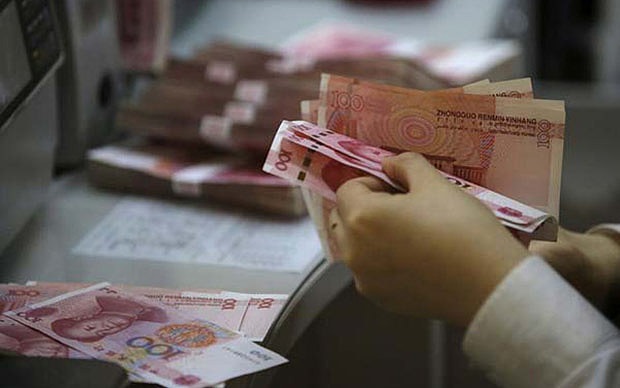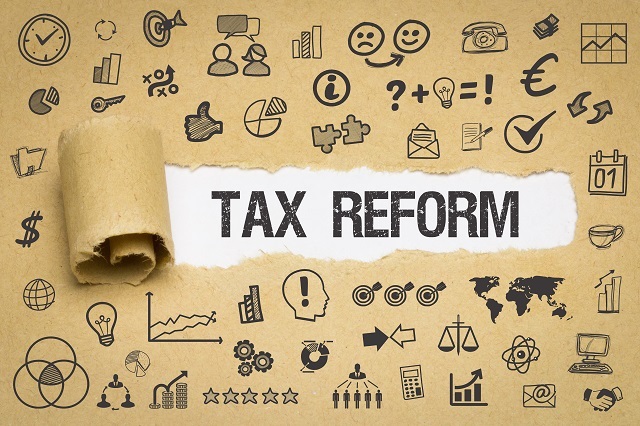The state council released signals
to reduce taxes and fees, drive start-up and innovation in China
By Kelvin Lee, PwC
 国务院发布了信号
国务院发布了信号
减少税费,推动中国的创业和创新
2018年9月,国务院总理李克强举行了多次国务院常务会议, 提出了一系列财政税收政策方向,以减少税费,促进创业和创新,建设对中国有利的投资环境。 特别是,为了建立“创新与创业”的升级版,国务院发布了“关于提升创新与创业精神的意见”,以促进创新与创业的高质量增长(国发[2018] 32号) )。9月26日,还提出了关于提升创新和创业精神以及改善支持性金融服务等的观点......
扩大对外开放,吸引外资
2017年底,为了吸引外资,营造良好的投资环境,财政部和国家税务总局联合发布了一份通知,对外国投资者利用分配的利润进行直接再投资提供预扣税延期待遇。这种延期处理的标准之一是,直接再投资必须符合“外商投资产业指南” 和“中央外商投资优惠产业目录”中规定的业务。
企业还应关注近期发布的其他相关财税政策,分析这些政策对充分享受政策利益的影响。 普华永道还将继续监督相关政策的实施,并在适当的时候与您分享我们的意见。
In September 2018, the State Council Premier Li Keqiang held a number of State Council Executive Meetings (the “Meetings”) which set forth a series of fiscal and taxation policies direction to reduce taxes and fees, promote start-up and innovation, and build a favourable investment environment in China. In particular, to build an upgraded version of “innovations and entrepreneurships”, the State Council released the Opinions on Upgrading the “Innovation and Entrepreneurship” to Promote the High-Quality Growth of Innovations and Entrepreneurships (Guofa [2018] No. 32) on 26th September, which provided its views on upgrading innovations and entrepreneurships, as well as on improving the supportive financial services, etc…
In this article, we will summarise the directions of these fiscal and taxation policies mentioned during the recently held Meetings and share our observations. In the meantime, PwC will continue to follow the implementation of relevant policies and share with you relevant observations in due course.
 In Detail
In Detail
Recently held meetings set out the direction of development of China’s fiscal and taxation policies in the following three areas:
Supporting Corporate Innovation and Leveraging Venture Capital Investment
Start-ups and innovations have become a new set of dual engines for China’s economic development. Encouraging entrepreneurship investment and technological innovation can effectively promote enterprises to improve their innovative capacity, enhance their competitiveness in the global market, as well as demonstrate the advantages and positive role of venture capital investment. As such, Meetings set forth favourable development objectives for both innovative enterprises and their investors in China.
• Increasing super deduction ratio of research and development (R&D) expenses for CIT purpose: Meetings propose to extend the favourable enhanced 75% R&D expenses super deduction policy currently applicable to small and medium sized technological enterprises to all enterprises in China. On 20th September, the finance and tax authorities jointly released Caishui [2018] No.99 to stipulate that between year 2018 and 2020, all enterprises are eligible for a super deduction of 75% of R&D expenses actually incurred (or an amortisation expense of 175% of R&D expenses which have been capitalised into intangible assets).
• Overall tax burden for venture capital funds remain unchanged: The State Administration of Taxation (SAT) had clarified at the 2018 third quarter video conference on policy interpretation that natural person partners shall be subject to Individual Income Tax (IIT) according to the income category of “income derived from production and business operations” at the progressive rate of 5% - 35% on equity transfer income allocated from domestic partnerships. This clarification had enticed wide concern and vigorous reactions from the private equity (PE) industries. Meetings have decided to maintain the stability of locally implemented supporting tax policies for venture capital (VC) funds. In this respect, the relevant authorities will formulate tax policies to support the development of VC funds in revising detailed implementation rules (DIRs) for IIT law. Meanwhile, principle of revision is not to retrospectively apply the rules and to ensure that the general tax burden of VC funds does not increase.
• Trading of shares through National Equities Exchange and Quotations (NEEQ) is exempt from IIT: Under the IIT Law and its DIRs, income derived from the disposal of shares shall be subject to IIT under the income category of property transfer. Further, Circular Caishuizi [1998] No.61 provides IIT exemption to individuals on income derived from disposal of shares of listed companies. Nevertheless, local-level tax authorities have different views as to whether the trading of shares at the secondary market of NEEQ shall be subject to IIT in China. Meetings clarified that the trading of shares through NEEQ shall follow the tax treatment for share disposal of listed companies, which is to say, the disposable income can enjoy IIT exemption treatment. This clarification shows the state’s support to the development of the NEEQ, which will help to further stimulate market vitality.
• Tax incentives for high-tech incubation service are further expanded: China’s fiscal and taxation authorities have released multiple circulars to provide property tax, urban land use tax and VAT exemption treatment for high-tech incubation service and National University Science Parks. However, eligible enterprises have to satisfy certain criteria, including passing the assessment of the national high-tech incubation service status, or obtaining qualification as a National University Science Park, etc. As such, the eligible scope of tax incentives is relatively limited. Now Meetings have decided to extend these incentives to the provincial-level entities, which will further expand their scope of application accordingly.
 Expanding Opening-Up and Attracting Foreign Capital
Expanding Opening-Up and Attracting Foreign Capital
At the end of 2017, in order to attract foreign capital and build a favourable investment environment, the Ministry of Finance and the SAT have jointly released a circular providing a deferral treatment for withholding tax on direct re-investment by foreign investors using profits distributed from tax resident enterprises in China. One of the criteria for such deferral treatment is that direct re-investment has to be in the encouraged categories in the Industry Catalogue Guide for Foreign Investment (the “Catalogue”) and businesses prescribed in the Preferential Industry Catalogue for Foreign Investment in Central and Western Region. Meetings have decided to extend the deferral treatment to investment in all non-prohibited businesses and sectors.
The Catalogue includes a catalogue of encouraged sectors, and a negative list for foreign investment (i.e., restricted and prohibited sectors). Hence, direct re-investment in restricted sectors on the negative list are expected to enjoy the tax deferral policy provided that they satisfy certain restrictions for foreign investment such as equity ratio and senior executives requirement, etc. To swiftly implement this decision of the Meetings and effectively attract foreign capital, we anticipate the policy on extending the tax deferral policy to be released before the 2018 annual CIT filing and effectively from 1st January, 2018, retrospectively.
 Adapting To Industry Upgrading and Reducing Enterprises’ Cost
Adapting To Industry Upgrading and Reducing Enterprises’ Cost
To adapt to industry’s upgrading and reduce enterprise’s cost, Meetings also decided to reduce the import duty of certain goods, and promise to appropriately reduce the social welfare contribution rate to ensure enterprise’s burden is not increased.
• Reducing the import duty of certain goods: At the 2018 Boao Forum for Asia (BFA) Annual Conference, China announced to further expand the scope of tax reduction and strive to increase the import of specific advantageous products that satisfy the need of the general public. The State Council has already reduced the customs duty rates for certain import goods in batches. Meetings have once again responded to China’s announcement at the BFA by reducing the import duty of 1,585 categories of manufactured products and goods from 1st November, 2018. In particular, the average duty rate for mechanical and electronic devices such as construction machinery, instruments and meters that are in high demand in the domestic market is reduced from 12.2% to 8.8%, the average duty rate for textile products and construction materials is reduced from 11.5% to 8.4%, the average duty rate for certain resource goods such as paper products, as well as primary processing products is reduced from 6.6% to 5.4%, and the duty rates for similar goods that belong to the same category are further consolidated and simplified. As of now, measures announced this year to reduce customs duty are expected to reduce the tax burden of enterprises and consumers by nearly RMB 60 billion. In the meantime, China’s overall tariff level will be reduced from last year’s 9.8% to 7.5% this year.
• Reasonably reducing the social welfare contribution rate: After the tax collection and administration reform in China, non-tax revenue and social security contribution payment will be collected and administered by tax authority. According to the Plan on Deepening the Reform of Tax Collection and Administration System of State Tax Bureaus and Local Tax Bureaus (the “Plan”), all kinds of social security contribution payment and certain non-tax revenue shall be collected by tax authority starting from 1st January, 2019. Prior to this Plan, the social security authority is comprehensively accountable for the collection of social security contribution payment, and underpayment of staff’s contribution portion by enterprises may exist. Tax authorities of some regions have already started to go after the social security contribution underpayment after the release of Plan. Meetings stressed that before the effective date of change in the authority responsible for the administration and collection of social security contribution payments, local authorities have to ensure that the current policy remain unchanged. Meanwhile, China shall also accelerate the process of studying measures to appropriately reduce the social welfare contribution rate to ensure that enterprise’s overall burden is not increased. Going forward, the tax authority will improve efficiency in social security contribution payment collection via effective means, which will provide room for the reduction of social welfare contribution rate.
 The Takeaway
The Takeaway
The Chinese government has been continuously releasing signals on opening-up to foreign capital since 2018. According to the statistics released by the Ministry of Commerce, between January and August 2018, foreign direct investment has achieved a year-on-year growth of 6.1%. It is believed that the tax deferral policy for foreign direct re-investment, if released as planned, will further expand the opening-up and attract foreign capital in China. Foreign investors planning to re-invest into China (except for prohibited businesses) may consider arranging their profit distribution (e.g., cash flow movement, etc.) well in advance according to the criteria of tax deferral treatment prescribed in Caishui [2017] No.88, and re-invest into domestic projects according to the upcoming circular to be released in China.
As the tax authority takes over the social security contribution collection, this portion of revenue will be administered in a more formalised approach and implemented rigorously. Practices of underpayment by enterprises through lowering the social security contribution payment base of staff members can no longer be continued. As such, it is recommended that enterprises establish a set of internal compliant procedure for making social security contribution payment in a timely manner and pay close attention to relevant policy development.
Enterprises shall also pay attention to other related fiscal and taxation policies released recently, and analyse the impact of these policies to fully enjoy the policy benefits. PwC will also continue to monitor the implementation of relevant policies and share with you relevant observations in due course.